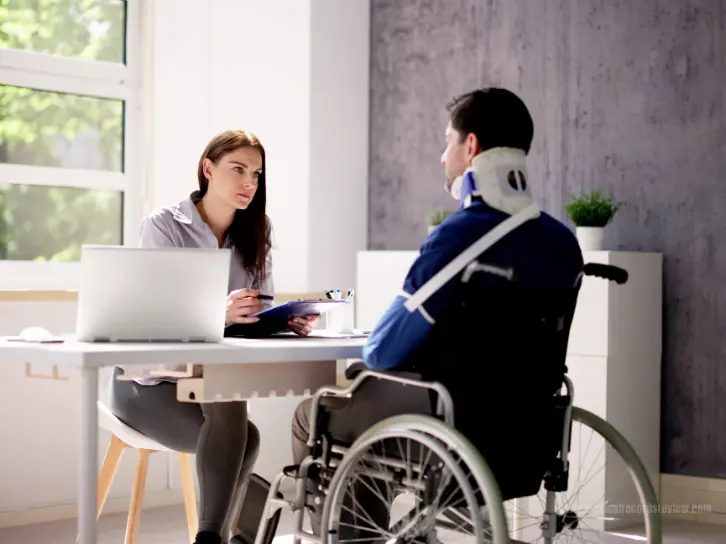Introduction
Lawyers need to understand medical negligence and medical malpractice to navigate these complex cases. When a healthcare provider fails to meet the expected standard of care, leading to patient harm, this is medical negligence. Medical malpractice is a bigger concept than negligence and requires proving four elements: duty, breach, injury, and damages.
Lawyers must understand these ideas to represent clients effectively. This includes careful collection of evidence, thorough checking of medical records, and negotiation skills when engaging insurance firms.
Understanding Medical Negligence
In healthcare practice duty of care means that doctors must follow the proper standards so that they do not cause any damage to patients. When a healthcare provider breaches these norms causing defaults in his obligations, he has committed dereliction of duty.
Standard of care refers to what level of service providers like doctors should provide to patients depending on their specialty areas. This standard also depends on factors such as the training or experience of the practitioner involved or certain specifics relating to each case for example, an orthopedic surgeon must have different expertise from a normal physician.
Common Types of Medical Negligence Cases Attorneys Encounter
Attorneys commonly deal with several claims related to negligence in medicine such as:
- Diagnostic Errors: Inaccurate diagnosis or delayed treatment may lead to the wrong medication being administered resulting in the deterioration health status of patients.
- Surgical Mistakes: Surgical errors might involve operations done on the wrong sites or leaving instruments inside patients’ bodies following surgery.
Real-Life Examples
A slight mistake while diagnosing a dangerous illness instead of a minor one can cause serious consequences due to poor treatments given by a doctor service provider.
Having surgical errors such as operating on a wrong body part brings about much bodily trauma alongside emotional distress which may require additional corrective surgeries.
The Role of Medical Records in Proving Malpractice Claims
Medical records form the basis for any malpractice claim. They act as evidence to prove both liability and causation. Detailed documentation can demonstrate departures from the expected standards of care, revealing negligence by healthcare providers.
Establishing Liability
Detailed records reveal the sequence of care, treatments given, and interactions between the patient and medical personnel. Establishing negligence demands any deviation or omission be revealed.
Proving Causation
A well-documented proof links breach of duty directly to an injury suffered by a patient victim. This connection must be shown for damages to be awarded. High-quality medical records make a significant difference to any potential damages payable to victims.
Navigating the Medical Records Review Process for Negligence Cases
Steps in Reviewing Records:
- Collect Comprehensive Records: Everything should be looked for including charts, test results, treatment notes, etc.
- Chronological Arrangement: In a timeline, form organized records such that you can visualize what happened first second third fourth etcetera.
- Identify Key Entries: Highlight important entries that show deviations from standard care or errors made.
- Cross-Reference Data: Compare the doctors’ notes and diagnostic tests with past health conditions to check mistakes that may have been made during the treatment process
Challenges Attorneys May Face:
- Volume of Information: An extensive amount of paperwork must be attended to with great accuracy since this is an essential disease-associated aspect that could arise if not addressed properly by either side.
- Complex Terminology: This may require hiring professional translators who understand medicine better than anyone else due to its complexity especially when dealing with legal issues concerning claims against health workers who might not speak English fluently enough on their own without assistance from translation experts.
- Incomplete Documentation: Failure to record some information or omitting any part of it can hinder the progress of a case.
Proving Medical Negligence: Key Elements Attorneys Must Establish
You must establish specific elements to build a strong case for medical negligence:
- Breach of Duty: Show that the healthcare provider failed to provide an acceptable standard of care.
- Direct Causation: Demonstrate a clear connection between the breach and the patient’s injury.
It is crucial to rely on expert testimony to prove these claims. It will enable you to establish whether actions done by health providers were not up to standards and how they directly resulted in patients’ damage.
Steps Attorneys Should Follow When Filing a Malpractice Claim
This guide comprehensively outlines steps attorneys should take when initiating malpractice lawsuits:
1. Initial Consultation
Review preliminary facts and possible evidence to assess whether it makes sense to proceed with litigation or not.
2. Collecting Medical Records
Obtain all relevant medical records ensuring completeness and good organization.
3. Retaining Expert Witnesses
Hire experts who can testify about deviations from the standard of care as well as its definition.
4. Drafting the Complaint
Develop an exhaustive complaint detailing claims made therein and the legal basis therefor.
5. Filing the Lawsuit
File your complaint before the expiry of the statute of limitations in an appropriate court.
There are certain essential documents including:
- Summarized versions of relevant medical records.
- Expert witness reports.
- Detailed patient history
These steps help you lay a robust foundation for your lawsuit, increasing your chances of success at the trial stage.
Creating Case Narratives: A Key Strategy for Success
Summarizing relevant information into cohesive narratives enhances clarity and persuasiveness during litigation proceedings. By distilling complex medical records into logical, easy-to-follow stories, attorneys can effectively
communicate the sequence of events, highlight deviations from the standard of care, and underscore the resulting harm.
High-quality documentation practices such as informed consent greatly contribute to favorable case outcomes.
Frequently Asked Questions
How do you use medical records in a way that proves negligence claims?
In lawsuits alleging professional negligence against healthcare providers, medical records can be used as vital evidence by showing what care was given or not; how it differed from the required minimal standard of care; and what happened over time with the person’s health. They also help establish fault and cause while well-documented proof may significantly affect potential awards made to victims.
What are some main issues lawyers must prove when arguing medical malpractice?
To prove a case of medical negligence, lawyers must show several things. First, there is an obligation to care for patients and the healthcare provider must be held accountable. Second, this obligation has been breached. Thirdly, the patient suffered some harm or injury from this breach. It ends with actual damages occurring because of the injury.
What is Medical Negligence or Malpractice?
This involves a situation where a healthcare professional fails in their duty to provide reasonable care expected under normal circumstances causing injury or harm to a patient.
While medical negligence is about what happened when treatment was provided without due attention being paid to all likely forms of negligence in law it amounts to a medical malpractice claim if there is any injury caused by such neglect.
Uncover medical negligence with precision, partner with MRR Health Tech for expert medical record reviews that strengthen your legal cases!



